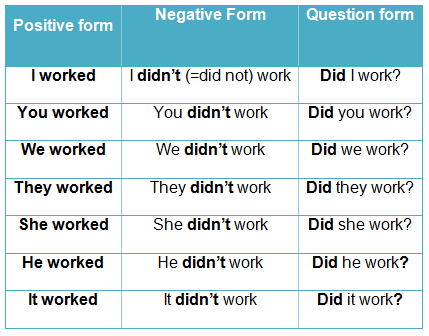Have a look at some vocabulary and exercises by clicking on the image.
Showing posts with label exercises. Show all posts
Showing posts with label exercises. Show all posts
Friday, 20 March 2015
Wednesday, 18 March 2015
Simple past Regular Verbs
Thursday, 12 March 2015
Tuesday, 3 March 2015
Tuesday, 24 February 2015
Saturday, 24 January 2015
Vocabulary Exercises
If you want some extra practice for vocabulary on Education, try these exercises:
FCE Education 1
FCE Education 2
FCE Education 3
Wednesday, 21 January 2015
Prepositions and relative clauses
A relative pronoun can be the object of a preposition:
I found the keys which I was looking for.
That´s the woman who(m) I´m in love with.
- In informal English we usually put the preposition at the end of the relative clause and we omit the relative pronoun:
I found the keys I was looking for
That´s the woman I´m in love with.
- In formal English the preposition may come at the beginning of the relative clause, before the relative pronoun.
I found the keys for which I was looking.Note: We cannot put a preposition before that or who
That´s the woman with whom I´m in love.
More examples:
- listen to
The music is good. Julie listens to the music.
→ The music (which / that) Julie listens to is good.
→ The music (which / that) Julie listens to is good.
- work with
My brother met a woman. I used to work with the woman.
→ My brother met a woman (who / that) I used to work with.
→ My brother met a woman (who / that) I used to work with.
- go to
The country is very hot. He went to the country.
→ The country (which / that) he went to is very hot.
→ The country (which / that) he went to is very hot.
- come from
I visited the city. John comes from the city.
→ I visited the city (that / which) John comes from.
→ I visited the city (that / which) John comes from.
- apply for
The job is well paid. She applied for the job.
→ The job (which / that) she applied for is well paid
→ The job (which / that) she applied for is well paid
Friday, 9 January 2015
Wednesday, 10 December 2014
Reported Speech
Basic Tense Chart
The tenses generally move backwards in this way (the tense on the left changes to the tense on the right). - See more at: http://www.rubenvalero.com/english/content/reported-speech#sthash.UmrPMLLo.dpufOther verb forms
Other verb forms also sometimes change:
Things are slightly more complicated with imperatives
Time and place references
Example:
"I'm staying here until next week"
→ He said he was staying there until the following week.
→ He said he was staying there until the following week.
Personal pronouns
You also need to be careful with personal pronouns. They need to be changed according to the situation.
Remember:
The verb tenses do not always follow the rules shown above
Exercises
Statements
Tuesday, 2 December 2014
Thursday, 27 November 2014
Thursday, 30 October 2014
If you want to practise present simple, click on the following links.
Exercise 1
Exercise 2
Exercise 3
Exercise 4
Exercise 5
Friday, 10 October 2014
Do vs. Make
Here you'll find an interesting chart and an exercise.
Wednesday, 1 October 2014
Thursday, 25 September 2014
Subscribe to:
Comments (Atom)










.jpg)








